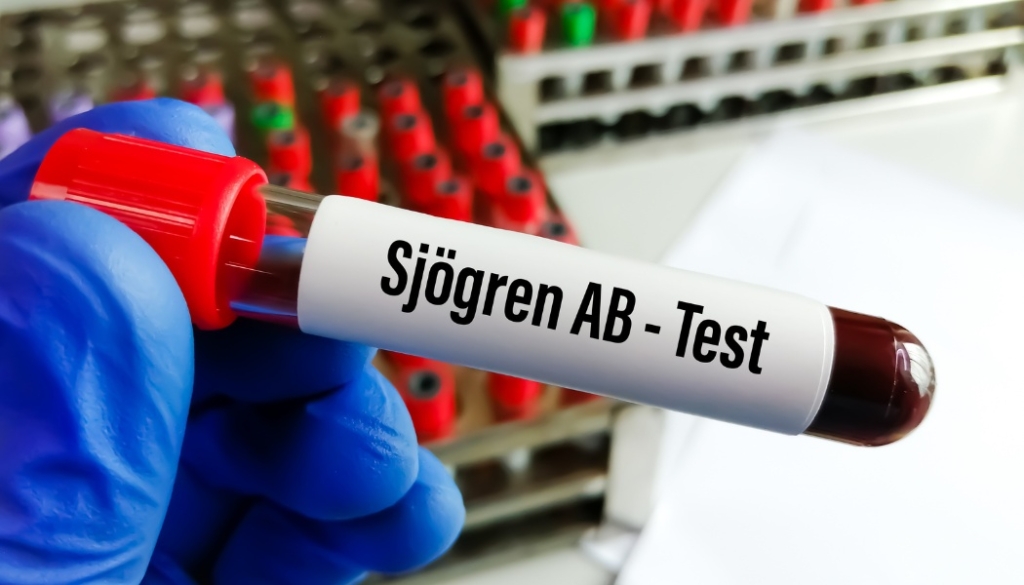Regenerative Medicine for Sjögren's Syndrome: A New Treatment
Sjögren’s Syndrome is a complex autoimmune disease that presents a wide array of symptoms, primarily targeting the body’s moisture-producing glands. Traditional treatments often fall short in addressing these symptoms effectively. However, advances in regenerative medicine, particularly stem cell therapy, offer a promising new approach. This article delves into the potential of stem cell treatment for Sjogren’s Syndrome, explaining its mechanisms, benefits, and the clinical evidence supporting its use.

What is Sjögren's Syndrome?
Sjögren’s Syndrome is a systemic autoimmune disorder that primarily affects the body’s moisture-producing glands, leading to symptoms like dry eyes and mouth, profound fatigue, and chronic pain. Named after Dr. Henrik Sjögren, who first identified it in the early 20th century, this condition affects millions worldwide and often coexists with other autoimmune diseases such as rheumatoid arthritis and lupus.
Stem Cell Therapy for Sjögren's Syndrome
Stem cell therapy is emerging as a revolutionary treatment for Sjögren’s Syndrome. By harnessing the regenerative properties of stem cells, this therapy aims to address the root causes of the disease rather than just alleviating symptoms.
What are Stem Cells?
Stem cells are undifferentiated cells capable of transforming into various specialized cells. Mesenchymal stem cells (MSCs), in particular, are known for their regenerative abilities and are commonly derived from sources such as bone marrow, adipose tissue, and umbilical cord blood.
Benefits of Stem Cell Therapy for Sjögren’s Syndrome
- Tissue Repair: MSCs can differentiate into the specialized cells needed for tissue repair, promoting the regeneration of damaged glands.
- Immune System Modulation: Stem cells secrete anti-inflammatory molecules and growth factors that help regulate the immune response, reducing the autoimmune attack on the body’s tissues.
- Inflammation Reduction: The anti-inflammatory properties of stem cells help alleviate chronic inflammation, a key factor in Sjögren’s Syndrome.
Mechanism of Action in Sjögren’s Syndrome
Once administered, stem cells migrate to the sites of inflammation and damage. They secrete various bioactive molecules that modulate the immune system, reduce inflammation, and stimulate tissue repair. This comprehensive approach not only alleviates symptoms but also addresses the underlying autoimmune processes.
Clinical Evidence Supporting Stem Cell Therapy
Numerous clinical studies have demonstrated the effectiveness of stem cell therapy in treating autoimmune diseases, including Sjögren’s Syndrome. For instance, patients receiving MSC therapy have shown significant improvements in tear and saliva production, as well as reductions in fatigue and pain.
Immunotherapy Regenerative Medicine Approach
At Immunotherapy Regenerative Medicine, we adopt a personalized approach to treating Sjögren’s Syndrome with stem cells. Our protocols are designed to ensure maximum safety and efficacy, tailored to each patient’s unique condition and health status.
Detailed Treatment Plan
- Initial Evaluation: A thorough assessment of the patient’s medical history, current symptoms, and overall health.
- Procedure: MSCs are administered intravenously or directly into affected areas to maximize their therapeutic effects.
- Follow-Up: Regular monitoring and follow-up visits to assess the patient’s progress and make necessary adjustments to the treatment plan.
Complementary Treatments
Benefits and Outcomes
Patients undergoing stem cell therapy for Sjögren’s Syndrome can expect significant improvements in symptoms and overall quality of life. The regenerative properties of stem cells help restore gland function, reduce inflammation, and modulate the immune system, leading to sustained relief and enhanced well-being.
Stem Cell Therapy For Autoimmune Diseases Reviews
Frequently Asked Questions About Sjögren's
How effective is stem cell therapy for Sjögren’s Syndrome?
Stem cell therapy has shown significant potential in managing symptoms and improving the quality of life for patients with Sjögren’s Syndrome. Clinical studies and patient testimonials support its effectiveness in reducing inflammation and promoting tissue regeneration.
What types of stem cells are used in the treatment?
Mesenchymal stem cells (MSCs), sourced from bone marrow, fat tissue, umbilical cord, and other tissues, are used due to their regenerative and immunomodulatory properties.
Are there any risks or side effects associated with stem cell therapy?
While generally considered safe, potential risks include infection, immune reactions, and unwanted tissue growth. It is essential to receive treatment from a reputable clinic with experienced medical professionals.
How long does it take to see results from stem cell therapy?
Results can vary depending on the individual’s condition and severity of the disease. Some patients may notice improvements within weeks, while others may take several months to experience significant benefits.
How can I determine if I am a candidate for stem cell therapy?
A comprehensive evaluation by a qualified healthcare provider is necessary to determine eligibility. Factors such as medical history, current health status, and the specific condition will be considered.
Reserve Your Appointment Now
Contact Immunotherapy Regenerative Medicine today to schedule your consultation and explore how advanced stem cell therapy can help manage Sjögren’s Syndrome and improve your quality of life. Our team of experts is dedicated to providing personalized, effective care to help you achieve optimal health.